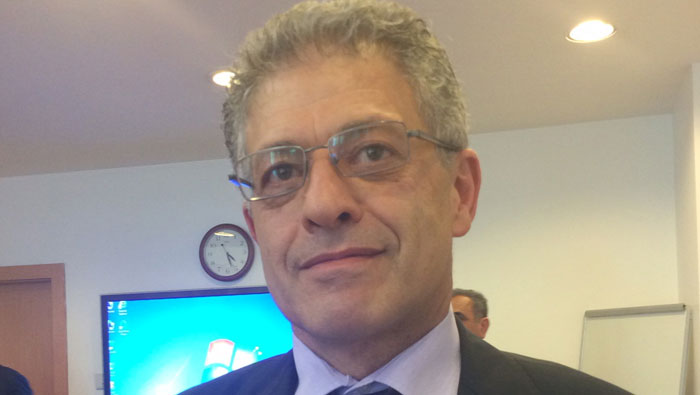
Ankara: Steps towards ensuring commitment from all countries for addressing migrant issues will be taken at the World Humanitarian Summit, a top official at the Turkish ministry has said.
"At the summit, we will come out with a plan that ensures cooperation and commitment from all countries for addressing the migrant crisis. It's not only our problem or a regional problem. All countries in the world are affected by the migrant crisis," Levant Murat Burhan, ambassador and deputy undersecretary at the Turkey’s Foreign Affairs Ministry, told the Times of Oman (TOO).
"So, we will look for an immediate solution to addressing the current issues and also chalk out a long term strategy that ensures that a migrant crisis does not occur in the world," the ambassador added.
Turkey, which is home to around 2.5 million Syrian migrants who have fled their homeland due to political conditions and conflict, will host the first-ever United Nations (UN) World Humanitarian Summit on May 23 and 24.
"The five core aims set by the UN to be discussed at the summit are, commitment from political leadership to prevent and end conflict; upholding the norms that safeguard humanity; leave no one behind; change people’s lives — from delivering aid to ending need; and investing in humanity," the ambassador said, adding that the movement of humans in large numbers is the biggest problem the world is facing now.
"We look at the summit as a venue to begin a new era of global cooperation to halting the terrible suffering of people affected by conflicts and disasters," the ambassador added.
Talking to TOO, Omer Cetin, an expert at the Turkish Cooperation and Coordination Agency, which is involved in developmental projects in many crisis-hit countries in the region and Africa, also sounded the same opinion.
"Everyone should come together. Only then can the migrant crisis be resolved. The Gulf Cooperation Council (GCC) countries are doing their part. But we expect more from them," the official said, adding that alleviating poverty and putting in place developmental projects is believed to be one of the measures that will stem the growing migration crisis.
Since the outbreak of the Syrian war, Turkey has acted as a buffer zone between the Middle East and Europe. It’s one of the places refugees head first, to safety, while they work out what to do next.
Of the one million refugees and migrants who ended up in Europe last year, 800,000 arrived in Greece via Turkey.
The International Organisation for Migration (IOM) says that more than 143,000 refugees have arrived this year alone, and about 460 have died.
Commenting on the recent deal struck between the European Union (EU) and Turkey on returning migrants, who cross the Aegean Sea to Greece, the ambassador said it has been successful.
According to the deal, any refugees arriving in Greece can now expect to be sent back to Turkey if they do not apply for asylum or if their claim is rejected.
The deal also says that for every migrant sent back to Turkey, one Syrian already in Turkey will be resettled in the EU.
On April 4, the first group of migrants, around 200, mostly Pakistanis and Afghans, were sent back from Greece, while around 43 refugees in Turkey were resettled across Europe.
Talking about the aid, the ambassador said promises are made by countries; however, unfortunately, many are not fulfilled on time.
The UN refugees chief recently said nearly half of the $12 billion in funds pledged at a conference in London to help Syrian refugees in the Middle East are yet to be allocated.
Filippo Grandi said he was very concerned by the slow pace, and that it is crucial for honouring the pledges made at the February conference this year.
Grandi was speaking at a UN conference on resettling Syrian refugees, at which the UN Secretary General, Ban Ki Moon, called for an exponential increase in global solidarity and an end to the demonization of refugees.
Referring to the London conference in February, the UN high commissioner for refugees warned: “More than half the promised funds have not yet been allocated. Rapid disbursement and early allocation are essential to allowing humanitarian organisations to scaling up operations in Syria and the region, and to stabilising displaced populations.”
The conflict in Syria continues to be by far the biggest driver of migration. But the ongoing violence in Afghanistan and Iraq, abuses in Eritrea, as well as poverty in Kosovo, are also leading people to look for new lives elsewhere.